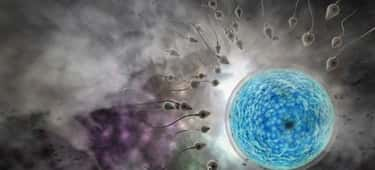Pregnancy After 50: A Reality?

Pregnancy after 55 years old in recent years has been made possible as a result of advancement in assisted reproductive technology especially with egg donation. By standard a woman’s fertility ends with menopause. This implies when a woman stays for twelve consecutive months without her menstruation.
The woman’s fertility clock
During perimenopause stage, the menstrual cycle and the menstruation of the woman become uneven and in due course stop completely. Even with the regular menstrual flow of a woman, the quality of her egg goes down as she ages. Thus, it is more difficult for a woman who is more than 42 years of age to conceive a healthy baby than when she is a bit younger. Apart from the Biblical women legends like Sarah, the oldest recorded woman who gave birth is a seventy year old Indian woman, Omkari Panwar, who gave birth through cesarean operation to two underweight babies.
Official documentation of pregnancy above 50
There is currently no official data on the number of American women who conceived after 50 and successfully gave birth yearly. However, there have been a lot of news reports about women who got pregnant in their late 50s and early 60s through donor eggs. Five hundred and thirty–nine births were reported among women over the age of 50 starting from 1997 to 1999 while the numbers of women who gave birth above 55–year–old were 194.
There are also reports in the United States of women who gave birth at 60 and above. These women include Frieda Birnbaum of Saddle River, New Jersey, who gave birth to twins in 2007 at age 60 and became the oldest US woman with multiple births and Janise Wulf a 62–year–old woman who gave birth to child in 2006.
Medical considerations of pregnancy after 50
Although, it may sound miraculous that advanced IVF technology is allowing older women to become pregnant, medical experts share concerns about possible increase to maternal health risks like heart complications and higher risk of breast cancer.
The pregnancy risks for a woman increases as her age increases. Some of the health risks connected to pregnancy and giving birth after the age of 50 include the following: an enhanced likelihood of developing gestational diabetes, being hypertensive, giving birth through caesarean operation, miscarriage, preeclampsia, and placenta previa.
When compared to women between 20 and 29 years of age, women more than 50 years old are nearly three times at risk of having premature birth and giving birth to low birth weight children. The older women also have almost double the rate of fetal mortality.
Older women have greater risk of developing fatal complications. A 2002 University of Southern California study, for instance found that 26 percent of women ages 50 to 54 had preeclampsia condition, and 13 percent of these women suffered from gestational diabetes. The same research found that women more than 55 years of age had 60 percent and 40 percent likelihood of suffering from the sicknesses respectively.
Recent findings
New study about pregnancy in older women seemed to disapprove this widespread belief that the higher the age of a woman, the higher the possibility of running into pregnancy risks.
A study conducted at Columbia University Medical Center on 101 post-menopausal women, all receiving IVF treatment with donated eggs, discovered that their pregnancies are not riskier than those of their younger women counterpart who also conceived through IVF.
The study found that the women aged 50 and above had equivalent chances of developing complication like gestational diabetes and premature delivery like women who are less than 42 years old receiving similar treatment.
A research into post-menopausal women undergoing IVF with donated eggs, found that older women were at equal risk with younger women who got pregnant with donated egg through IVF apart from the fact that the older women are more likely going to develop high blood pressure than the younger women.
Dr Mark Sauer stated that older women can go through normal pregnancy if they are properly screened and suitably catered for.
Recommendations by medical experts
Although, there is yet no official guidelines from organizations such as the American Society for Reproductive Medicine on the age that is considered too old to have a baby, top fertility experts and high-risk obstetricians are becoming increasingly concerned about this daring increase in peri- and postmenopausal pregnancy.
A number of fertility clinics won’t treat women that are more than 51 years old because they consider it to be very risky for the mother and the child. There are also a number of fertility clinics in the United States including top ones that take women in their late 50s.
Overall, pregnancy among older women has long been a subject of debate. While some argue against it due to possible health complications that may result or due to the consideration that an elderly woman may be unable to provide the child with a suitable care as she ages others argue that so long as the woman is well catered for and properly screened she should be okay and if the child is properly looked after the age of the woman does not matter at all.